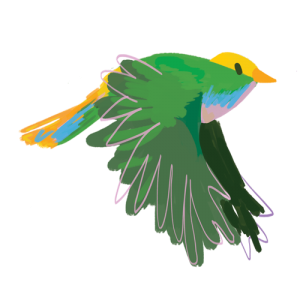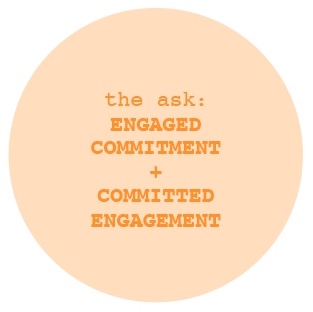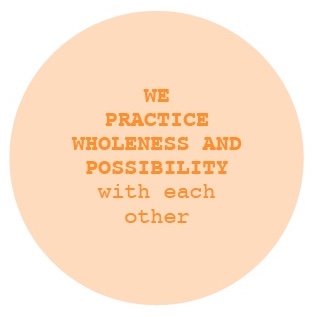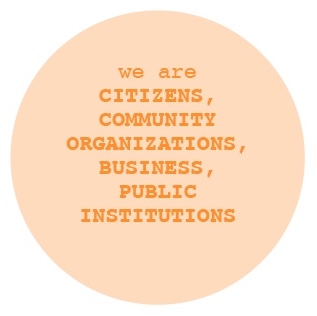cities to serve citizens, citizens to serve cities NCC Fall 2019 Application and Registration
NCC Fall 2019 Application and Registration
why: activate, practice
Our work serving our city involves a lot of doing without pausing to notice if our actions are aligned with what is truly being asked of us. The Nest City Circle is an opportunity to embark on a learning journey—as individuals and as a wee community—about our work in and with city systems, to be consciously and effectively engaged in the act of city making.
Over the course of 16 weeks, we will enjoy dedicated time to co-evolve transformative openings into new possibility for our work and our cities. We will explore the dynamics that make cities and the roles we play. We will explore layers of value systems in the city to help us discern new city making habits that are about possibility.
It is time to be personally involved in our work, whether paid or unpaid; it is time to figure out who we want to be, beyond what we do. This is not a journey best taken alone, for the city itself is a shared enterprise. The times of rapid change we find ourselves in are not going to stop changing. What we can change is how we meet the demands we place on ourselves, and how we support each other as we face these demands.
We have a distinct choice in front of us: work separately or together; work in fragmented ways or in ways that foster wholeness. The latter can only take place in community. If we learn to be in community while we work together, we can only improve how we serve the city well. And this is necessary for cities to serve citizens well.
This is time to activate and practice new habits to serve citizens and cities well.
how: a loop of loops
We will develop our capacity to work in city systems and the wider city systems we work in and with. We will circle up eight times, each time swooping in from our day-to-day lives to circle up, strengthen up, and then fly back out into the world.
After sixteen weeks we will emerge more conscious of how we work, how we are part of city systems, how we interrelate with city systems, and the roles we play to create physical, social and economic habitats for our city and citizens to thrive.
Each time we circle up together as a group, the following pattern will guide our agenda:
- Community check in
- Get into the work (What does the content mean to me, to us? So what does knowing this mean at scale (individual and community)? Now what are the implications for practical application at scale?)
- Community check out
Interspersed between the loops is time to review the material just covered, and begin exploring the material for the next gathering. You are invited to work with a buddy, to touch in on the ‘off’ week when we do not meet as a large group. Beth will have office hours, to be available to meet with you individually if you have something you’d like to explore further; this is time to get the needed support you need for an idea, a project, or explore whatever needs exploring.
We will work on tangible content while simultaneously practicing a good quality social habitat for our exploration as a 16-week community.
NCC Fall 2019 Application and Registration
what: a learning experience
Using developmental evaluation principles, we will explore content (What) provided by Beth Sanders, a chapter or two to read prior to each gathering. The purpose of our gatherings is not to review the material, but co-create a social habitat to contemplate and reflect on the material in our lives and work (So What), in a variety of ways. We will also discern implications (Now What) on our lives and work, both in terms of what we are doing and how we are doing it.
What we will explore:
| Loop 1 | Our social habitat. In this first loop we will orient ourselves to the ground we will cover over 16 weeks, reach some agreements about how we will work together and get to know each other. We will begin our conversation about the nature of evolutionary relationships. |
| Loop 2 | City making is a survival skill. Loop 2 involves exploration of our personal and collective relationships with the city. We will identify how we shape our city, how it shapes us, and the inherent purpose of the city. We will explore the truth of many truths and the diversity of roles and perspectives that need to be taken into account to serve the whole city. We will part with an understanding of the habitats and relationships of the city, that the city habitat is a collective endeavor. |
| Loop 3 | Cities are evolutionary systems. Evolutionary intelligence and levels of complexity will be explored with practical insights into the activated value systems in the city. |
| Loop 4 | Cities and city planners. City planning is about having a destination but it’s not linear conventional planning. Instead, it is about feeling uncertain and finding ways to live with the uncertainty of not knowing exactly where we are going. This requires new forms of relationship between planners, citizens, community organizations and the business community. |
| Loop 5 | Cities: the messy work of possibility. The tension we experience in our cities is an evolutionary driver. The social habitat we create for ourselves—to enable learning, adaptation and resilience—is essential. This is individual and collective work. The city is full of thresholds, places where we have a choice to deepen into what it means to see, grow and perform possibility. |
| Loop 6 | The story makes the city. This loop marks a shift to focus on how we—and our work—show up in the city. If the city regenerates itself with our work, how do we best contribute? What are the stories we wish to tell ourselves about our city? Who does our city want to be? |
| Loop 7 | We are evolutionary agents for the city. If vocation is conscious citizenship, what does it mean to be your own superhero? What does it mean to make room for other superheroes? What are the patterns of how our city operates that help and harm our development? |
| Loop 8 | The city emerges from our action and inquiry. We need to know our city and where it wants to go to best serve it. And in this mix we need feedback loops that serve as vital signs. This last module will conclude with “A Bird’s Eye View” of our work and its implications. |
NCC Fall 2019 Application and Registration
when: online or face-to-face (in Calgary, Canada)
This Nest City Circle is a 16-week program that will take place in the fall of 2019. We will meet eight times, roughly every other week. There are two options:
| ONLINE (ZOOM) | FACE-TO-FACE (Calgary, Canada) |
|
|
| Wednesdays from 9:00 am to 10:30 am MDT/MST. | Wednesdays from 11 am to 1 pm MDT/MDT. |
NCC Fall 2019 Application and Registration
how: practice new habits
Each loop of the Nest City Circle is a habitat to practice new habits. As a learning community, we will co-create a learning habitat that will allow us to achieve five things:
- Learn ways to see and interact with city systems on whole, system-wide ways
- Notice the implications of this — the knowing and understanding
- Support each other in the discomfort of new knowing and understanding
- Find ways to act in alignment with new knowing and understanding
- Identify the social habitat we need to work effectively as a group that is willing to learn and grow together, and support each other as we learn and grow together
Our time together is time to strengthen seldom-used muscles and this strengthening will take practice. A community of co-workers that works together to serve our city takes practice. In essence, we support each other to show up again and again in alignment with our highest and best selves. We are actively engaged in creating a habitat in which we learn to practice in every moment. We look for creative opportunities to improve our work and explore them, work on them.
Together, we are better able to see how we are open to possibility and how we close off and contract when faced with opportunities to learn and grow. As a community, we will find ways—and support each other—to work from a stance of wholeness, not fragmentation or silos. We will explore ways to see and practice interrelatedness. It’s not about each of us working better and smarter. It’s about a group of us working better and smarter. And that takes practice.
NCC Fall 2019 Application and Registration
who: committed participants
This is an invitation for people to embark on a learning journey about their work and their relationships with the city in which they work and live. It is an opportunity to learn, in community, how to improve city life and our relationship with cities.
The ‘who’ are people who are keen to grow and evolve their work and how they approach their work. The ‘who’ are people who desire to challenge themselves and each other, and who desire to learn how to do so in healthy ways. The ‘who’ are people who desire to be themselves more fully and recognize the role of community in this work.
To participate in the Nest City Circle, you are asked to commit to the following:
- Engage in the full 16 weeks of our time together. This is a mutual commitment, to stick together as a community, to learn together. We commit to ‘stay on the inside’ of our interpersonal relationship for the duration of this experience (ie, not run away). We commit to organize our lives—to a reasonable extent, recognizing that ‘life happens’—to allow and enable our participation.
- Attend a 2-hour gathering, once every 2 weeks. This is our face-to-face time, together as a learning community. To create a viable community, we commit to at least 6 of the 8 gatherings.
- Read the material ahead of each gathering. Two weeks before each gathering, we will have access to no more than 50 pages of material to digest. Each gathering will build on the reading material, an opportunity to integrate and make meaning of the material in our lives. This is a commitment to be prepared; if not prepared we diminish our individual and collective experience.
- Embody the Nest City Social Habitat ‘basic materials’. A set of agreements, principles and practices are proposed to support us in our learning journey together. We commit to review and embody these, and highlight when we are not embodying this commitment.
- Participate lightly in our Mighty Network, our online space to discuss, share ideas and resources, and check in on how we are doing. This will maintain a sense of community between our eight gatherings. You are not expected to participate heavily here, just pop in a couple times a week.
NCC Fall 2019 Application and Registration
your guide: Beth Sanders
Your primary guide on this learning journey is Beth Sanders MCP RPP, a fourth-generation settler in Treaty 6 territory in Western Canada, residing in Edmonton. Beth is a city strategist and city systems meshworker, recognized as the first winner of the International Integral City Meshworker of the Year award in 2013, for her ability to work with cities as complex systems.
Beth is a writer, urbanist and consulting city planner who works and volunteers with citizens, community organizations, public institutions and the business community who strive for cities that that serve citizens well. The better we serve our city, the better our city serves us in return. Beth sees the city as a nest, a habitat we build for ourselves and it is time to organize ourselves to build the nest we need. The catch: citizens must serve the city well.
cost: $990 or pay what you can (higher or lower)
The value of this learning experience is $990 CAD. AND we are asking people to pay what they can. This means that you might pay more or less. (You can pay more to help cover the costs for those who pay less and you can pay less to make what you pay the right stretch for you.)
How this might shake out for you:
- $1880 – to pay for myself and another ($1880 +GST = $1974.00 CAD)
- $1435 – to pay for myself and half of another ($1435+ GST = $1506.75 CAD)
- $990 – to pay for myself ($990 + GST = $1039.50 CAD)
- $750 – to pay what I can ($750 + GST = $787.50 CAD)
- $435 – to pay what I can ($435 + GST = $456.75 CAD)
- $200 – to pay what I can ($200 + GST = $210 CAD)
Paying what you can means noticing your financial context. Choose the right financial stretch for you – no one else will know.
- Pay more than $990 because you can and you feel like enabling others’ participation
- Pay $990 because that works for you
- Pay less than $990, with a number that reflects what you can pay (you might be unemployed, underemployed, or that is simply what works at this time)
Whatever your financial situation, if the Nest City Circle is of interest to you we want to enable your participation. Questions — just get in touch at office@populus.ca
NOTE – We will not dicker with you. We ask that if you choose to pay less than $990 CAD, because that’s what work best for you, please find a way to pay it forward in some way that improves city life.
apply: with a few words and a payment
To ensure we have a group of people who are a good fit with each other, please send a brief note to express why you are interested in the Nest City Circle. Please use this form to write your note and send to office@populus.ca, with NCC Registration in the subject line.
NCC Fall 2019 Application and Registration
(On the attached form you will also indicate how you’d like to pay. Options are: etransfer, PayPal, cheque in CAD.)
let’s circle up!
The prototype version of the Nest City Circle in 2018 was a great success. We look forward to introducing you to the the city evolutionary community!
Now I understand that it is people, just people, who play different roles and are all yearning deep down to be heard and to listen. This obviously means reconciling interests that usually stay away from each other. But we as humans can do that. We have the intelligence. Through the book and the course, what came out for me was how these interests can be articulated so we can understand each other. And the other is just another face, who maybe doesn’t look like me on the surface nor act like me but deep down we have more in common than we think.
This has given me a faith that change is possible and it starts anywhere.
Andres, Nantes (citizen, France)
It’s invaluable to have a dedicated period of time to slowly read material and engage with a diverse cross-section of folks involved in the city ecosystem who are not collectively invested in a particular project or solving some specific problem. The time to think, together, about what drives our practice was extremely refreshing and educational.
I think of the experience in much the same way that I appreciate “slow food.” With slow food there’s an ability to consider the landscape and soil quality (terroir), to consider the cultivation and harvesting of ingredients, and to consider the preparation and enjoyment of a meal. The fulfillment and nourishment that ultimately comes from that experience is so much greater than simply eating quickly on the run. Our professional lives can feel like “eating quickly on the run” a lot, so the chance to take a “slow food” moment with my profession and my community was thoroughly satisfying. I encourage anyone looking for a new way to engage with the complexity of their city to consider this opportunity.
Kalen, Edmonton (city hall, Canada)
Prior to the course, I had an intuitive sense that we must tap into diverse voices and perspectives in order to build a city for all people, however, it was only after I finished the course that I was able to place a more concrete frame around what I was “feeling” was necessary.
Now that my eyes have been opened to the city-evolution perspective, I want to go bigger. I am inspired to explore what a larger format city-building organizations might look like, and what my role in that could be. I am excited by the prospect of arranging the four different voices in a way that allows for a balance between diversity and cohesion so that actionable recommendations can be offered to our city’s decision-makers.
I enjoyed connecting with the other participants and look forward to continuing some of those relationships.
Ashley, Waterloo (business, Canada)
To register, fill out this form and email it to office@populus.ca:





